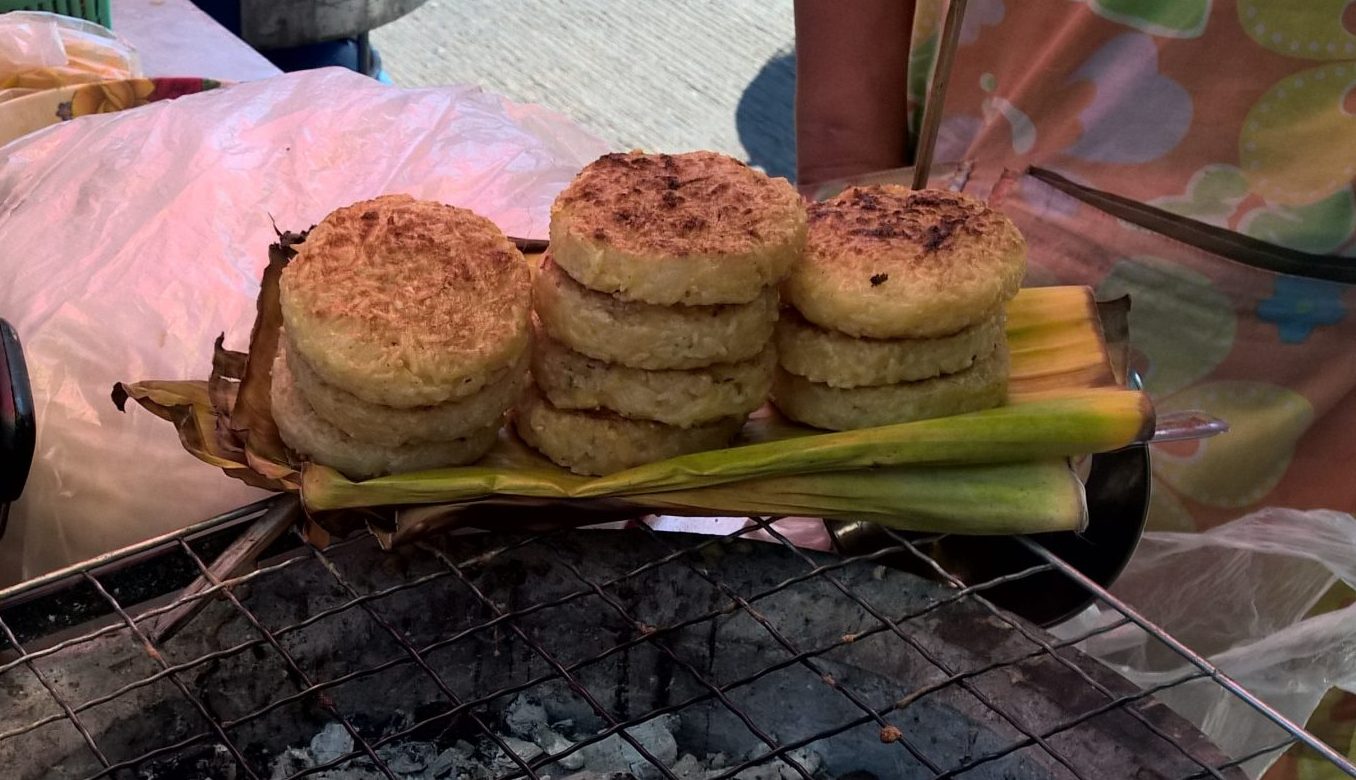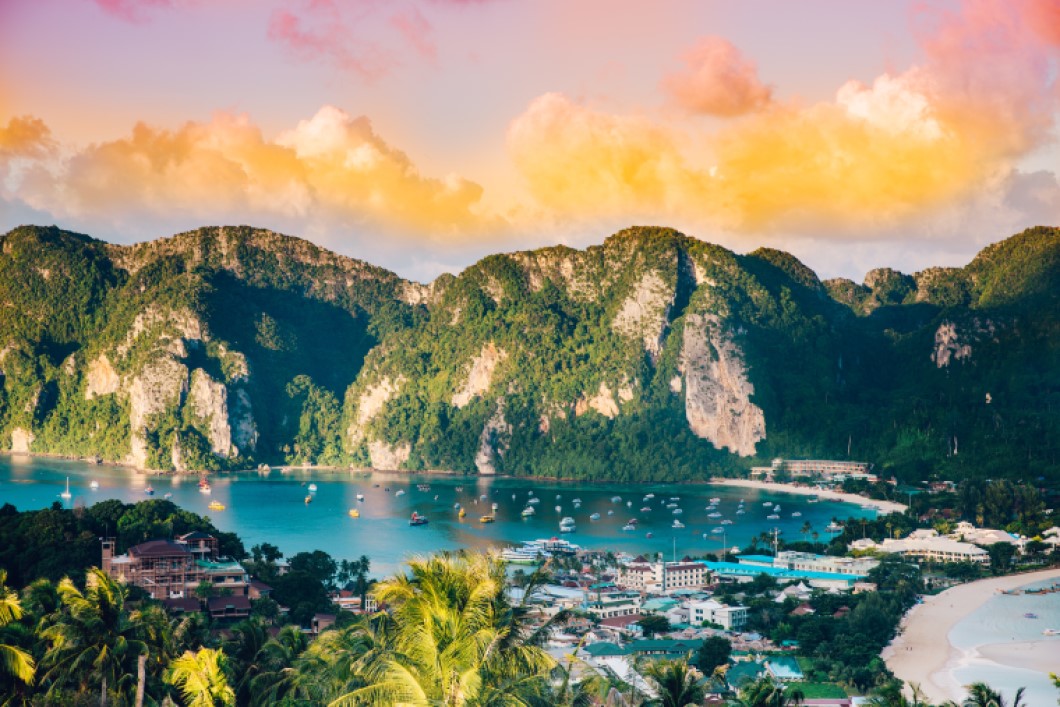
Khao Jee, literally “baked rice”, is one of my favorite Thai food items from my childhood. It is a traditional Lao food from Laos including ethnic Lao of Isan or northeastern Thailand. It is made by forming the sticky rice (“khao neaw”) into a flat rice ball similar to Japanese Onigiri. Many people do this by wrapping sticky rice around a long bamboo stick acting as a vehicle or method of reaching the hot fire and flipping the sticky rice patties without burning one’s hand, similar to toasting marshmallow over an open flame. Salt is then sprinkled and gently pressed on the rice ball before an initial baking. You may opt for adding salt to the egg instead. Once the rice turns orange and hardened, the whole rice ball is soaked in stirred raw egg. It will then go through finishing bake.
You can enjoy Khao Jee as is for your main meal together with other Thai dishes or for snacking. In Isan, Khao Jee is more widely consumed during winter. Nowadays, you may find Khao Jee in some roadside food stalls not only in Isan but through out Thailand including Bangkok. But they are not easy to be found may be because they are simple and usually sold at THB5-10 per piece which make Khao Jee less economical as a business .


